
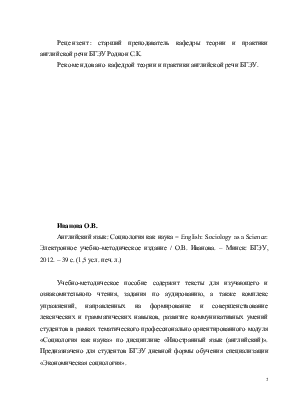

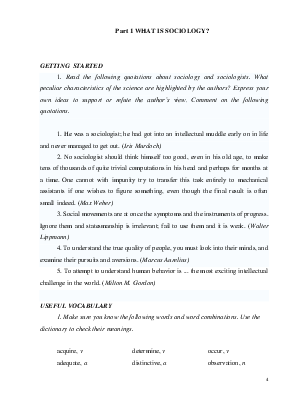
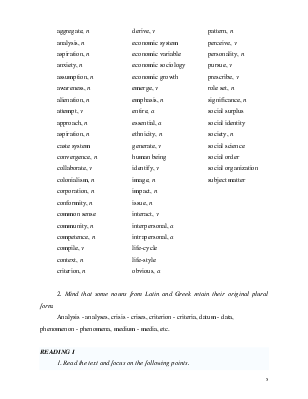
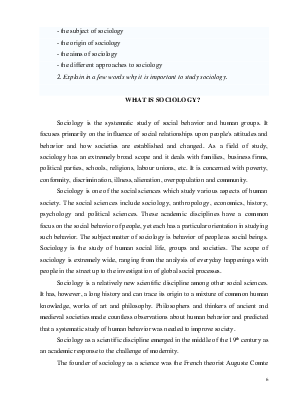
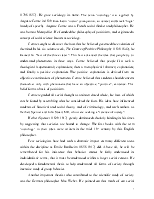
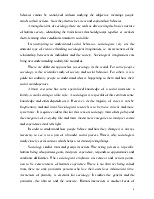
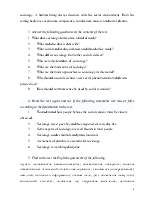
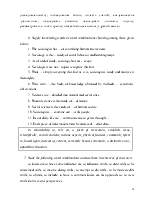
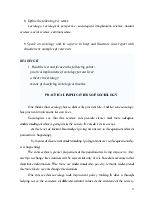
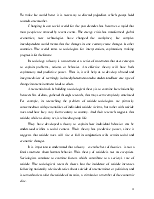
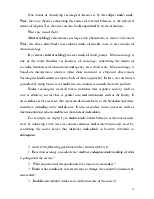
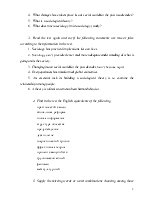
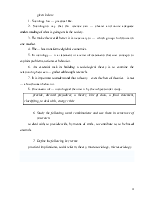
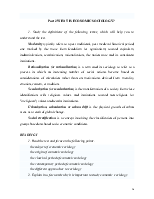
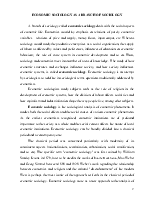
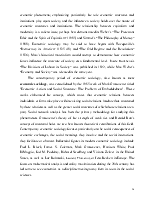


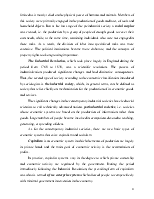
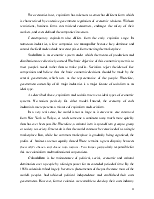
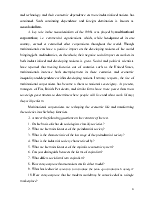

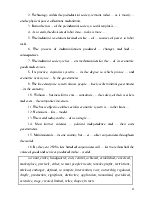
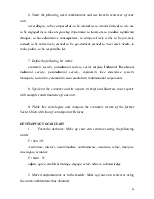
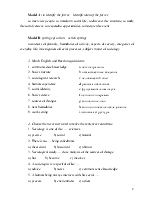

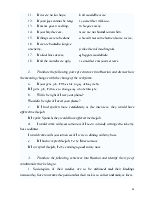
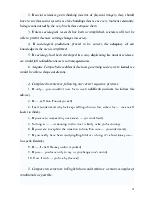
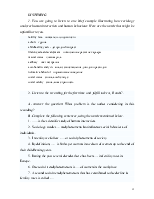
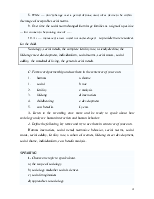
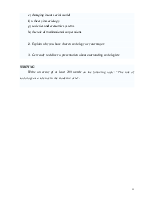
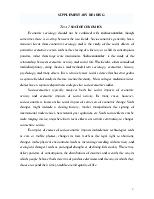
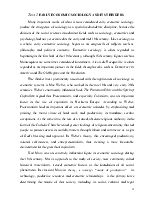
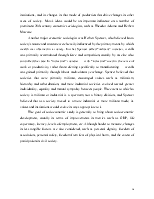
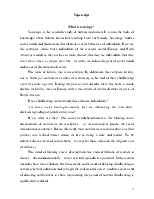

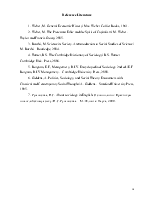
МИНИСТЕРСТВО ОБРАЗОВАНИЯ РЕСПУБЛИКИ БЕЛАРУСЬ
УО «Белорусский государственный экономический университет»
ENGLISH: SOCIOLOGYASASCIENCE
АНГЛИЙСКИЙ ЯЗЫК:
СОЦИОЛОГИЯ КАК НАУКА
Электронное учебно-методическое издание
по дисциплине «Иностранный язык (английский)»
Минск 2012
Рецензент: старший преподаватель кафедры теории и практики английской речи БГЭУ
Рекомендовано кафедрой теории и практики английской речи БГЭУ.
Английский язык: Социология как наука = English: Sociology as a Science: Электронное учебно-методическое издание / О.В. . – Минск: БГЭУ, 2012. – 39 с. (1,5 усл. печ. л.)
Учебно-методическое пособие содержит тексты для изучающего и ознакомительного чтения, задания по аудированию, а также комплекс упражнений, направленных на формирование и совершенствование лексических и грамматических навыков, развитие коммуникативных умений студентов в рамках тематического профессионально ориентированного модуля «Социология как наука» по дисциплине «Иностранный язык (английский)». Предназначено для студентов БГЭУ дневной формы обучения специализации «Экономическая социология».
CONTENTS
Part 1. What is sociology?………………………………………………..4
Part 2. What is economic sociology?.........................................................16
Supplementary Reading……………………………………………………34
Tapescripts………………………………………………………………….40
Reference literature………………………………………………………..43
Part 1 WHAT IS SOCIOLOGY?
GETTING STARTED
1. Read the following quotations about sociology and sociologists. What peculiar characteristics of the science are highlighted by the authors? Express your own ideas to support or refute the author’s view. Comment on the following quotations.
1. He was a sociologist; he had got into an intellectual muddle early on in life and never managed to get out. (Iris Murdoch)
2. No sociologist should think himself too good, even in his old age, to make tens of thousands of quite trivial computations in his head and perhaps for months at a time. One cannot with impunity try to transfer this task entirely to mechanical assistants if one wishes to figure something, even though the final result is often small indeed. (Max Weber)
3. Social movements are at once the symptoms and the instruments of progress. Ignore them and statesmanship is irrelevant; fail to use them and it is weak. (Walter Lippmann)
4. To understand the true quality of people, you must look into their minds, and examine their pursuits and aversions. (Marcus Aurelius)
5. To attempt to understand human behavior is ... the most exciting intellectual challenge in the world. (Milton M. Gordon)
USEFUL VOCABULARY
1. Make sure you know the following words and word combinations. Use the dictionary to check their meanings.
|
acquire, v |
determine, v |
occur, v |
|
adequate, a |
distinctive, a |
observation, n |
|
aggregate, n |
derive, v |
pattern, n |
|
analysis, n |
economic system |
perceive, v |
|
aspiration, n |
economic variable |
personality, n |
|
anxiety, n |
economic sociology |
pursue, v |
|
assumption, n |
economic growth |
prescribe, v |
|
awareness, n |
emerge, v |
role set, n |
|
alienation, n |
emphasis, n |
significance, n |
|
attempt, v |
entire, a |
social surplus |
|
approach, n |
essential, a |
social identity |
|
aspiration, n |
ethnicity, n |
society, n |
|
caste system |
generate, v |
social science |
|
convergence, n |
human being |
social order |
|
collaborate, v |
identify, v |
social organization |
|
colonialism, n |
image, n |
subject matter |
|
corporation, n |
impact, n |
|
|
conformity, n |
issue, n |
|
|
common sense |
interact, v |
|
|
community, n |
interpersonal, a |
|
|
competence, n |
intrapersonal, a |
|
|
compile, v |
life-cycle |
|
|
context, n |
life-style |
|
|
criterion, n |
obvious, a |
|
2. Mind that some nouns from Latin and Greek retain their original plural form.
Analysis - analyses, crisis - crises, criterion - criteria, datum - data, phenomenon - phenomena, medium - media, etc.
READING I
1.Read the text and focus on the following points.
- the subject of sociology
- the origin of sociology
- the aims of sociology
- the different approaches to sociology
2. Explain in a few words why it is important to study sociology.
WHAT IS SOCIOLOGY?
Sociology is the systematic study of social behavior and human groups. It focuses primarily on the influence of social relationships upon people's attitudes and behavior and how societies are established and changed. As a field of study, sociology has an extremely broad scope and it deals with families, business firms, political parties, schools, religions, labour unions, etc. It is concerned with poverty, conformity, discrimination, illness, alienation, overpopulation and community.
Sociology is one of the social sciences which study various aspects of human society. The social sciences include sociology, anthropology, economics, history, psychology and political sciences. These academic disciplines have a common focus on the social behavior of people, yet each has a particular orientation in studying such behavior. The subject matter of sociology is behavior of people as social beings. Sociology is the study of human social life, groups and societies. The scope of sociology is extremely wide, ranging from the analysis of everyday happenings with people in the street up to the investigation of global social processes.
Sociology is a relatively new scientific discipline among other social sciences. It has, however, a long history and can trace its origin to a mixture of common human knowledge, works of art and philosophy. Philosophers and thinkers of ancient and medieval societies made countless observations about human behavior and predicted that a systematic study of human behavior was needed to improve society.
Sociology as a scientific discipline emerged in the middle of the 19th century as an academic response to the challenge of modernity.
The founder of sociology as a science was the French theorist Auguste
Уважаемый посетитель!
Чтобы распечатать файл, скачайте его (в формате Word).
Ссылка на скачивание - внизу страницы.